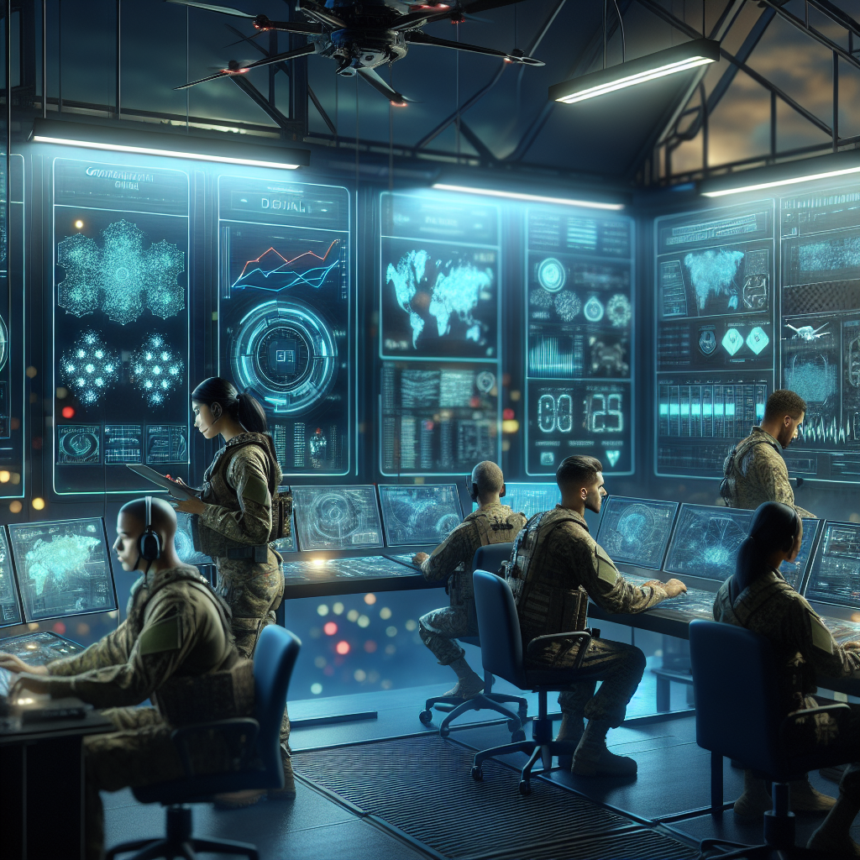The Future of Warfare: How AI is Revolutionizing Military Tactics
The landscape of warfare is undergoing a fundamental transformation, driven by the revolution of artificial intelligence (AI). As nations race to harness the capabilities of AI, military tactics are shifting dramatically, affecting everything from decision-making processes to battlefield strategies. This article explores how AI is poised to redefine warfare, emphasizing the innovations it brings, its implications for global security, and the ethical considerations that accompany its use.
The Integration of AI in Military Operations
AI technologies are increasingly being incorporated into military operations, enhancing various aspects of warfare. This integration manifests in numerous ways, including:
-
Data Analysis and Decision Support: Modern militaries are inundated with vast amounts of data from various sources such as reconnaissance satellites, drones, and ground sensors. AI algorithms can process and analyze this data at lightning speed, providing military leaders with actionable insights. Predictive analytics can assist commanders in anticipating enemy movements or responses based on historical patterns, thus refining strategic planning.
-
Autonomous Systems: Drones and robotic platforms equipped with AI capabilities are now capable of conducting missions with minimal human intervention. These autonomous units can perform reconnaissance, logistics, and even offensive operations, reducing the risk to human soldiers. For instance, AI-powered drones can navigate complex terrains, adapting to environmental changes in real-time.
-
Enhanced Training and Simulation: AI is revolutionizing military training through realistic simulations. Virtual reality (VR) and augmented reality (AR), powered by AI, enable soldiers to engage in lifelike scenarios that prepare them for the unpredictable nature of combat. These simulations can analyze a soldier’s performance, providing tailored feedback to enhance skills and decision-making under pressure.
- Cyber Warfare: As warfare increasingly takes place in cyberspace, AI is essential for both offensive and defensive strategies. AI can detect cybersecurity threats and respond to them swiftly, reflecting the dynamic nature of cyber warfare where speed is critical. Offensive AI tools can execute complex attacks on enemy infrastructure, showcasing the dual-edge nature of AI in military applications.
Ethical and Strategic Considerations
While the advancements in AI offer unprecedented opportunities, they also raise significant ethical and strategic concerns. The deployment of autonomous weapons systems, for instance, raises questions about accountability and the moral implications of machines making life-or-death decisions. Who is responsible if an AI system misidentifies a target or causes unintended casualties?
Moreover, the arms race in AI technology could destabilize global security. Nations that invest heavily in AI-driven military capabilities may possess overwhelming advantages, leading to a shift in power dynamics. This potential for asymmetric warfare raises alarms about an unregulated arms race, fostering insecurity in international relations.
The Future of Warfare
The future of warfare is likely to be shaped by AI in ways that extend beyond mere battlefield tactics. Artificial intelligence will redefine military hierarchy and decision-making processes, potentially democratizing intelligence by enabling lower-level commanders to access high-quality data analysis. Additionally, as AI systems evolve, concepts such as swarm tactics, where multiple autonomous units work together in coordinated attacks, could emerge as a new paradigm of warfare.
As countries continue to explore AI’s possibilities, collaboration may become essential. International frameworks to regulate the development and use of AI in military contexts could mitigate risks associated with autonomous warfare. Engaging in dialogues between nations might pave the way for establishing norms and regulations that ensure responsible AI deployment.
FAQs
Q1: How does AI improve military decision-making?
AI enhances military decision-making by processing vast amounts of data to provide timely, actionable insights. Predictive analytics helps military leaders anticipate enemy actions and make informed choices.
Q2: What are autonomous weapons?
Autonomous weapons are systems that can engage targets without human intervention. They utilize AI to make decisions regarding targeting and engagement, raising ethical questions concerning accountability and human oversight.
Q3: Can AI prevent cyber attacks?
AI plays a crucial role in identifying and mitigating cyber threats through real-time monitoring and response capabilities. It can analyze patterns to detect anomalies and respond to attacks faster than human operators.
Q4: What training benefits does AI offer to military personnel?
AI-powered simulations provide realistic training scenarios tailored to individual military personnel. This enhances their decision-making skills and prepares them for the complexities of real-world combat situations.
Q5: What ethical issues does AI raise in warfare?
The use of AI in warfare raises questions about accountability, the potential for unintended consequences, and the moral implications of machines making life-or-death decisions. Discussions on regulation and ethical frameworks are crucial.
As we look forward, the role of AI in military operations will continue to grow, demanding a balance between innovation and ethical responsibility. The challenge will be to leverage AI’s immense potential while safeguarding humanity against its risks.











